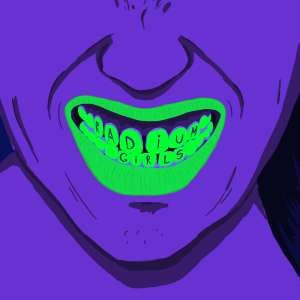Catching Up With Campus: Is it Gifted to be Gifted?
Oct 9, 2019
Girls sporting plaid skirts and knee-high socks and boys with neat, trimmed hair all sit at their desks, and wait anxiously as the teacher walks around and hands back tests. She folds each test hotdog-style as she passes it back to the student.
This is a scene I can easily call to mind. It is how I spent my entire grade-school education. Sitting in a bright yellow classroom and waiting for the moment our teacher stepped out of the room to discuss who got the highest score on our test, I remember once betting my classmate that I would score higher than him on all of our social studies exams. This hyper-competitive nature, at least for me, stemmed from being labeled an advanced student.
In elementary school, I excelled in reading and tested well above the average for my grade level. In eighth grade, I was one of eight students who were specially selected to take a high-school-level algebra class because we were the highest achieving students in pre-algebra. These accomplishments, along with accolades from my teachers, gave me confidence and helped me believe that I was an intelligent and promising student.
However, reflecting on it now, I think “advanced,” “gifted” or any variant term is damaging to both the students who are given those labels and to the students who don’t receive that type of praise.
In 1993, the Department of Education defined the term of gifted as “children and youth with outstanding talent who perform or show the potential for performing at remarkably high levels of accomplishment when compared with others of their age, experience or environment.”
Giving young children the label of advanced or gifted not only inflates their egos, it shapes their identities. It is an identity that places a hefty amount of pressure on children to achieve and accomplish, which makes it so much harder on them when they inevitably fail. Additionally, the label divides students into separate social spheres; it creates an unbelievable amount of competition between the highest achieving students and alienates those who were not deemed “gifted” by administrators.
“Gifted” students experience high levels of emotional distress due to parental pressure, lack of ability to create and sustain friendships, teachers’ academic expectations and boredom, according to an academic article published by Joan Freeman in the Journal for the Education of the Gifted.
The label of “advanced” affected the choices I made in my academic career. In high school, I took every honors and AP course I could just so I would feel that I was reaching my academic potential. Then, when I began college, I struggled with choosing my majors because I was not convinced that communications and political science could be as rigorous and stimulating as biology or chemistry. I soon realized this was false.
There is so much to explore on this topic, but I believe that labeling students is detrimental to their academic mindset. Learning should foster curiosity and critical thinking, not lock students into believing that if they receive one B they can kiss their future career goals goodbye.












